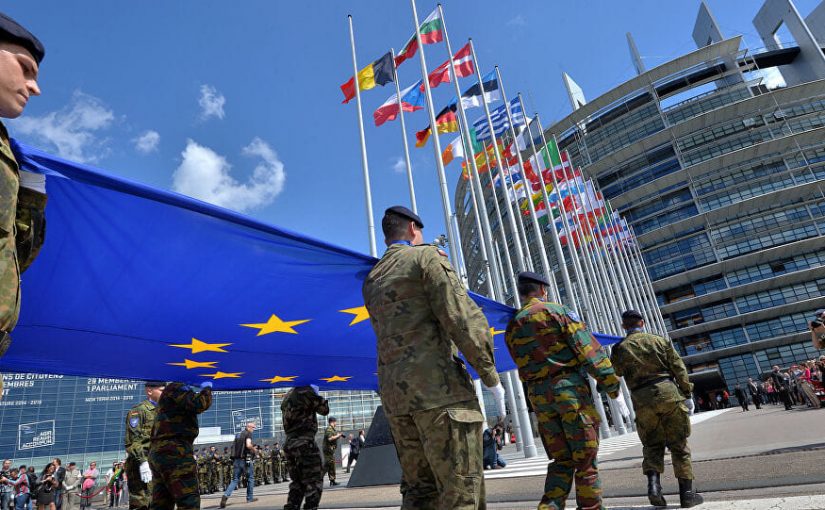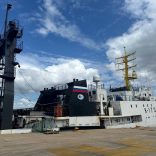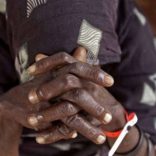Mozambique: Arrested for alleged attempt to sell 27-year-old friend, 6-year-old daughter - Watch
Mozambique: Portuguese commander ‘immensely proud’ to lead EU mission

File photo: Sala da Paz
The Portuguese general who will command the European Union forces on the ground that will train Mozambique’s rapid intervention units, Nuno Lemos Pires, received the appointment today with “immense pride and a great responsibility”, he told Lusa.
“This is a vital mission for Portugal and the European Union (EU), extremely relevant to what we can do to help Mozambique better,” said the Army brigadier-general, who is currently the deputy director-general for National Defence Policy at the Ministry of National Defence and a professor at the Military Academy.
Lemos Pires also made a point of expressing, “as a European”, “great pride in European solidarity” in helping Mozambique, “both in terms of security and development”. “I find this help that the EU is giving very important”, which is part of the “values that it defends, and in practice, it does: helping to give peace and development”, he said.
Entitled EUTM Mozambique, the mission approved today in Brussels by EU foreign ministers is now being prepared. Still, it will be fully operational by the end of October, the date from which the two years of its mandate will count.
“The intention is that the mission will be fully operational from the end of October. By then, we will have everything up and running, with the military of the various EU nations on the ground and everything happening. Until then, it is a phase of preparation and development”, explained Lemos Pires.
How many men it will have, and exactly what it will do “are questions that are still to be settled”, he said.
“Today is the political authorisation, followed by military planning. There are a series of details that have not yet been defined. But there is no doubt what the major mission is. The mission is to prepare special rapid intervention force units of the Mozambican Navy and Army,” he said.
The Portuguese armed forces are familiar with this type of force. They have deployed to various theatres of conflict, said the brigadier general, citing the examples of the Central African Republic or Afghanistan.
“The EU will train units of these, that is, it will prepare them, equip them with non-lethal equipment, and prepare them as best as possible so that these forces can face any challenge in the north, in Cabo Delgado,” Lemos Pires said.
The training will also have a fundamental focus, as expressed in the Council of EU Foreign Affairs Ministers’ statement issued today. The Portuguese Brigadier General stressed “the defence of human rights, of the life and dignity of the people”.
“While preparing forces to guarantee the safety and protection of civilians, we will also ensure that this training is accompanied by a strong focus on respect for the law, for human rights and human dignity”, underlined Nuno Lemos Pires.
The Brigadier-General, who has exercised instruction and command functions at the Infantry Practical School, but also in the intelligence services of NATO’s rapid deployment forces stationed in Valencia and was military assistant to the NATO Commander in the Joint Command in Lisbon, was also keen to stress that this is “a non-executive mission”.
“What was approved and what was requested by Mozambique to the EU was a non-executive mission. It means that we are going to train the Mozambican armed forces so that they can act. We give all kinds of training and support to train these forces and possible in various components. Still, who conducts the operations on the ground are the Mozambican Defence and Security Forces,” he stressed.
One of the issues that will arise on the ground is the coordination and interoperability of the various international forces present, called upon by Maputo to help fight against radical Islamist forces, particularly in Cabo Delgado province in northern Mozambique.
Lemos Pires said that this is “always a role reserved for those who invite, which is Mozambique.
“Mozambique has the freedom to invite whoever it wishes for this type of mission, but it is also a job that is done in coordination among everyone. The spirit is very open and frank between all the countries that are collaborating. Because, at the end of the day, what matters is helping to give more security and more development to the needy populations of Mozambique, namely in Cabo Delgado”, he said.
“We all gain from talking to each other, and that is what is happening,” he said. “Obviously, the EU talks to other actors there, from the regional security communities, such as the SADC (Southern African Development Community), to the United States or other countries that are helping there. But also, the Government of Mozambique itself, when it makes requests, makes them in coordination with the various authorities,” he said.
“I think that this is in everyone’s interest, it is already happening, and it will continue to happen”, he added.
Nuno Lemos Pires explained that “the number of people” that will be part of the EUTM has not yet been completely defined. “This then has to do with the ‘force generation’, that is when are countries willing to give”.
“Portugal said it would give half of these forces. It is estimated that it will be around 120, 130, 150… We don’t really know yet. Because the planning has just started. And what we know at this point is that we will probably be in two bases: one in the south, between Maputo and Catembe, and another in the north, between Beira and Chimoyo, to train, respectively, Navy special forces and Army special forces. This is the main mission and, for now, this is what we can say,” he concluded.
Armed groups have terrorised Cabo Delgado since 2017, with some attacks claimed by the ‘jihadist’ group Islamic State, in a wave of violence that has led to over 2,800 deaths, according to the ACLED conflict registration project, and 732,000 displaced people, according to the UN.













Leave a Reply
Be the First to Comment!
You must be logged in to post a comment.
You must be logged in to post a comment.